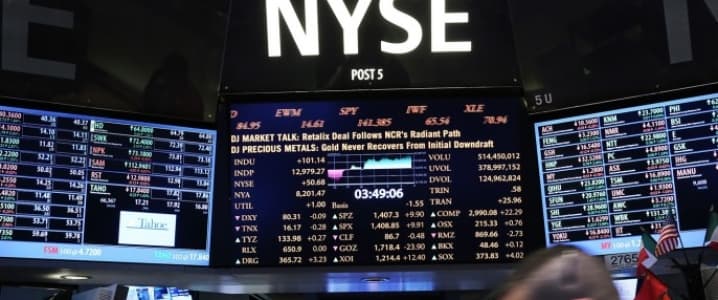Investors have a hidden risk ahead of them. Even as the market sits near all-time highs, the DOL’s (Department of Labor) new Fiduciary Rule threatens to upend the investing industry, and in the extreme, perhaps destroy many active manager’s businesses. This is especially true in sectors that have a lot of retail participation like the energy sector.
The fundamental issue with the new DOL rule is that it forces advisors to act as fiduciaries, which in turn will lead many advisors to try and play it safe by only recommending the lowest cost investment products such as basic plain vanilla index funds. That in turn could cut off investment advice available to individual investors, creating problems in sectors like energy which are complex and require special knowledge of industry metrics.
There is nothing wrong with being cheap and trying to save a buck, but the problem is that choosing only the lowest cost investment vehicles forces investors to give up slightly more expensive investment options that are still very much worthwhile – like selectively investing in those energy stocks which are most poised to benefit from the rebound in energy prices.
For instance, international stock ETFs like those for Russia are almost always more expensive than domestic equity ETFs. That’s understandable because international stocks are more expensive to trade. Yet advisors concerned about mitigating lawsuit risk and meeting a fiduciary obligation might push investors give up potential upside associated with energy power house Russia in exchange for the regulatory safety of a defensible holding in pure U.S. equities. That would be a costly long-run error for the investor though – at the end of the day, while international stocks in places like Russia can be volatile, they still serve a valuable diversification purpose in one’s portfolio.
Investors certainly should not be paying higher fees for mutual funds and investment advisors that do not perform. The problem with the new rule is that advisors may begin advocating that all of their clients put their portfolio into the lowest cost ETF without considering the upside that goes along with strategies like trend following in sectors like energy. It’s unclear if the bulk of advisors are willing to take the risk of doing what’s right for their client in the long-run at the risk of the short-run. All investment strategies have ups and downs, and advisors telling clients to pursue a more-expensive strategy that ends up suffering in the short-run (even though it should outperform in the long run), may face client wrath. Related: OPEC Head: Oil Inventories Already Dropping From High Levels
For advisors, the way to put out this fire (and protect their own business), is through investor education. Investors need to understand what they are paying for and they need to have clear expectations about the value being provided by premium investment research and advising.
The reality is that the average individual investor earns a return of roughly 4 percent in their portfolio over time according to the best studies on the topic. That abysmal return is despite a market that has an average return of 10.8 percent since 1949. The reason individual investors do so badly is that they get emotional and trade too often buying into the market when it is highest, and selling when it is lowest. This happened in energy in the oil price crash most recently.
One role of advisors in the future should be to keep clients from making that mistake. Helping investors stay the course and avoid panicking when markets like oil turn down is a valuable service. To help investors make the right long-term choices though, advisors are going to have to withstand the pressure to move to all vanilla indexing.
By Michael McDonald of Oilprice.com
More Top Reads From Oilprice.com:
- Trump’s Advisers Draft First-Day Energy Policy Changes
- Can Saudi Arabia Survive With Oil Below $60?
- Despite OPEC Deal Oil Prices Could Fall Sharply From Here


















